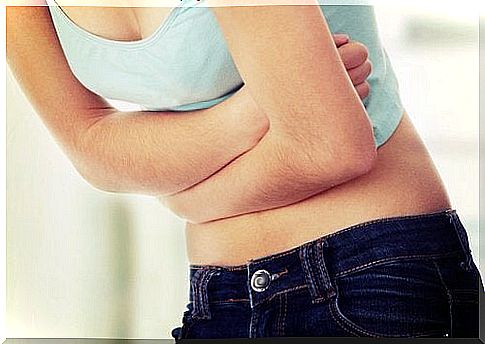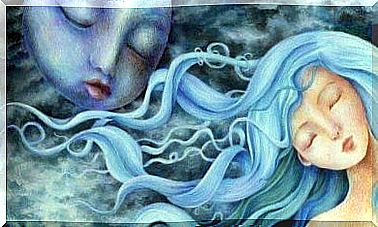Caffeine Poisoning: How Does It Happen?

Caffeine poisoning? That’s right! Caffeine occurs naturally in the leaves and seeds of many plants. It can also be artificially produced to be added to beverages and foods. It is considered a stimulant substance because it is able to activate the central nervous system and increase the alert level.
It is found in tea, coffee, energy drinks, some pain relievers and over-the-counter medications. It has a very bitter taste, which is usually disguised thanks to a good amount of sweeteners.
Its effect is usually similar to an energy injection and a mood enhancement, both of which are transient in nature. Some of us, however, tolerate this “discharge” less and prefer to avoid its consumption.
We all know that caffeine increases mental alertness, for better or for worse. The secret is in moderation. High doses of this substance can cause anxiety, nausea, headaches and nervousness. It also interferes with sleep cycles and can lead to decompensating our biological rhythm. Let’s find out everything there is to know about caffeine poisoning .
Caffeine can be addictive
Caffeine is estimated to be harmless when taken in moderate amounts. Experts consider moderate dose for an adult between 200 and 300 mg per day. An espresso contains about 80 mg, a cup of tea about 50-60, a can of Coca Cola about 40.

However, consuming 100 mg of this substance per day would already be addictive. This means that we can experience withdrawal symptoms (such as fatigue, irritability and headaches) if we stop consuming it.
Caffeine is found in many beverages, foods, medications, and supplements. We find it in coffee, tea, cola-based and energizer drinks, chocolate, over-the-counter pain relievers, cold medications, weight loss and sports supplements.
It is increasingly being added to vitamin supplements and certain foods, such as ice cream and sweets. More than 85% of children and adults consume caffeine routinely. In this sense, many of us show symptoms compatible with excessive consumption, including intolerance and withdrawal.
Caffeine intoxication
Caffeine intoxication is characterized by addiction and a series of symptoms that can arise 15 to 30 minutes after ingestion and persist for a few hours.
Symptoms can be physical or psychological: agitation, nervousness, excitement, insomnia, flushing of the face, excessive diuresis and gastrointestinal disturbances. They are especially felt by the most vulnerable categories, such as children, the elderly or people not used to the consumption of this substance.
With levels above 1000 mg of caffeine per day, it is possible to experience muscle spasms, disconnection of thought and speech, tachycardia or cardiac arrhythmia, periods of fatigue, psychomotor agitation and sensory alterations such as ringing in the ears or flashes of light.
Caffeine poisoning may not even occur despite a high intake, and this is due to the development of tolerance. In order to diagnose it, the signs and symptoms must cause a clinically significant level of distress or a deterioration in social, occupational, or other important areas of functioning.
Additionally, the developed signs and symptoms are not attributable to another medical condition, mental disorder, or other substance intoxication. These are the conditions reported in the Diagnostic and Statistical Manual of Mental Disorders (DSM-5).

Moderation is key
As always, the secret is in moderation. Although high doses of caffeine can increase heart rate, it is also true that small doses can even be good for the heart.
However, it is not yet known whether excessive consumption of caffeine can cause headaches.
How does caffeine poisoning develop?
Caffeine has a half-life in the body of around 4-6 hours. Symptoms of intoxication usually resolve within a few days, with no long-term consequences.
Massive doses of caffeine, on the other hand, (over 5-10 grams) can require immediate medical attention or even be lethal. With age, the reaction to caffeine tends to be stronger and stronger.

Intoxication has also been found in young people often accustomed to consuming high-caffeine products, including energy drinks.
Children and adolescents are particularly at risk from a number of factors including low weight, zero tolerance, and poor knowledge of the pharmacological effects of caffeine. The most common effects are insomnia and hyperactivity.
The power of caffeine should never be underestimated. The social consequences of abuse can be poor performance at school or work, difficulty regulating emotions, or failure to comply with duties.









